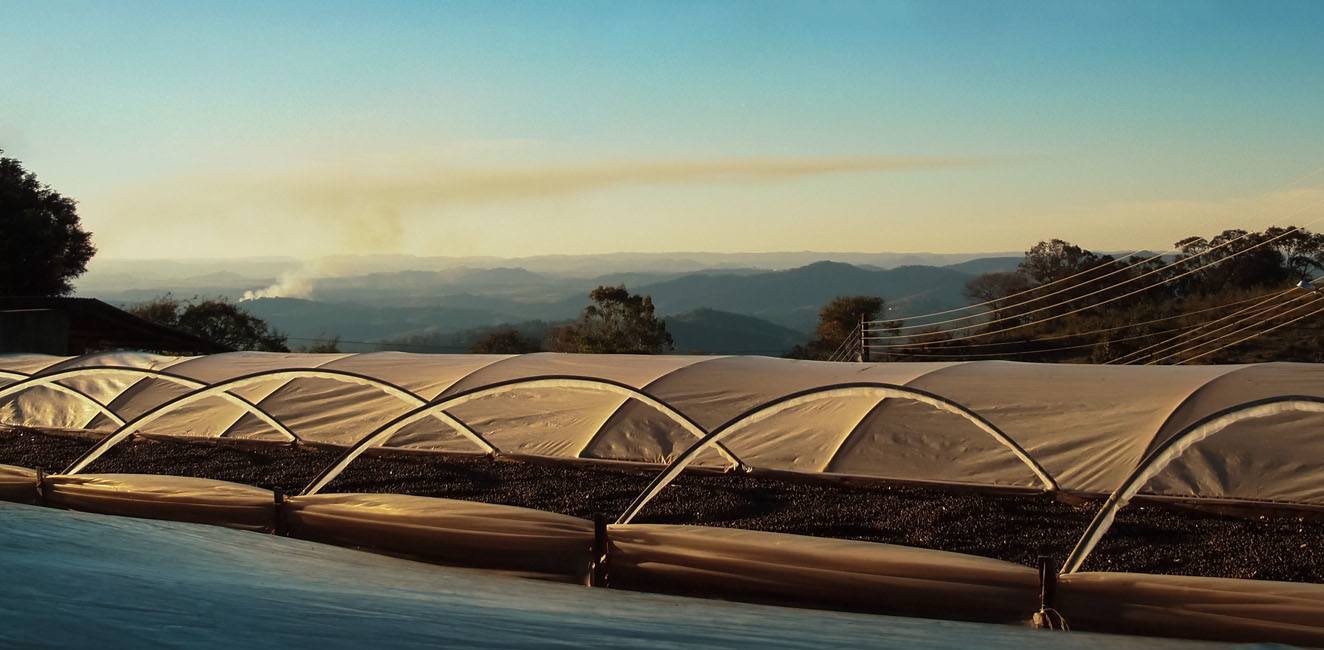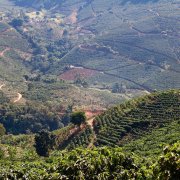Brazil Coffee Estate-Conservation Estate Story Fazenda Ambient Fortaleza

For professional baristas, please follow the coffee workshop (Wechat official account cafe_style)
When Silvia Barretto inherited the estate from the family and 150 farmers, she decided to change her traditional farming methods, instead of using fertilizers and pesticides, and using organic farming instead. She and her husband, Marcos Croce, returned to Brazil from Chicago with the idea that organic farming is good for the planet, but it was not recognized by the local community. It is even called a "crazy coffee farmer".
In 2001, Silvia officially inherited the farm and renamed it Fazenda Ambiental Fortaleza (FAF), which means "conservation farm". It stopped using chemical fertilizers and its production plummeted. Marcos also launched a more extreme social revolution, sharing 50% of the profits of coffee produced on the farm to farmers, encouraging people to produce the best quality coffee. Over the next few years, it was fraught with difficulties, but it gradually gained recognition in the American boutique coffee industry. In 2008, FAF won the Sustainable Management Award of the American Fine Coffee Association (the Specialty Coffee Association of America), and more and more bean bakers visited the manor to learn about their practices.
The next year their son Felipe also returned from the United States to work on the farm and set up a laboratory to further improve the quality and flavor of the coffee. Neighboring coffee farmers also began to work with them to send the coffee cherries to the manor's washing plant or drying bed for processing. FAF has become the engine of reform, driving the farmers around them to improve quality and promote organic farming.
Important Notice :
前街咖啡 FrontStreet Coffee has moved to new addredd:
FrontStreet Coffee Address: 315,Donghua East Road,GuangZhou
Tel:020 38364473
- Prev

Brazilian Coffee Sao Paulo producing area Sesominos Celso Minussi Environmental Conservation Manor Information
For the exchange of professional baristas, please follow the Coffee Workshop (Wechat official account cafe_style) Celso Minussi Micro-batch Environmental Conservation Manor in Sao Paulo, Brazil (Fazenda Ambiental Fortaleza;FAF) has undergone a radical change from customary to sustainable agricultural law in 2001. Last July, the The Barn team spent a week
- Next

Brazil's most expensive coffee bean-2017 Brazilian COE champion 130USD / lb Arcaya variety Acaia
The exchange of professional baristas, please pay attention to the coffee workshop (Wechat official account cafe_style). Is the impression of Brazil still in the Brazilian blend of Italian coffee in the past? In 2017, the bidding price for the first place in Brazil's COE peeling and tanning group reached US $130 / lb, while the top five in the suntan group all scored more than 90 points, and the first place got 93.6 points! Brazil is no longer Wu.
Related
- Detailed explanation of Jadeite planting Land in Panamanian Jadeite Manor introduction to the grading system of Jadeite competitive bidding, Red bid, Green bid and Rose Summer
- Story of Coffee planting in Brenka region of Costa Rica Stonehenge Manor anaerobic heavy honey treatment of flavor mouth
- What's on the barrel of Blue Mountain Coffee beans?
- Can American coffee also pull flowers? How to use hot American style to pull out a good-looking pattern?
- Can you make a cold extract with coffee beans? What is the right proportion for cold-extracted coffee formula?
- Indonesian PWN Gold Mandrine Coffee Origin Features Flavor How to Chong? Mandolin coffee is American.
- A brief introduction to the flavor characteristics of Brazilian yellow bourbon coffee beans
- What is the effect of different water quality on the flavor of cold-extracted coffee? What kind of water is best for brewing coffee?
- Why do you think of Rose Summer whenever you mention Panamanian coffee?
- Introduction to the characteristics of authentic blue mountain coffee bean producing areas? What is the CIB Coffee Authority in Jamaica?

